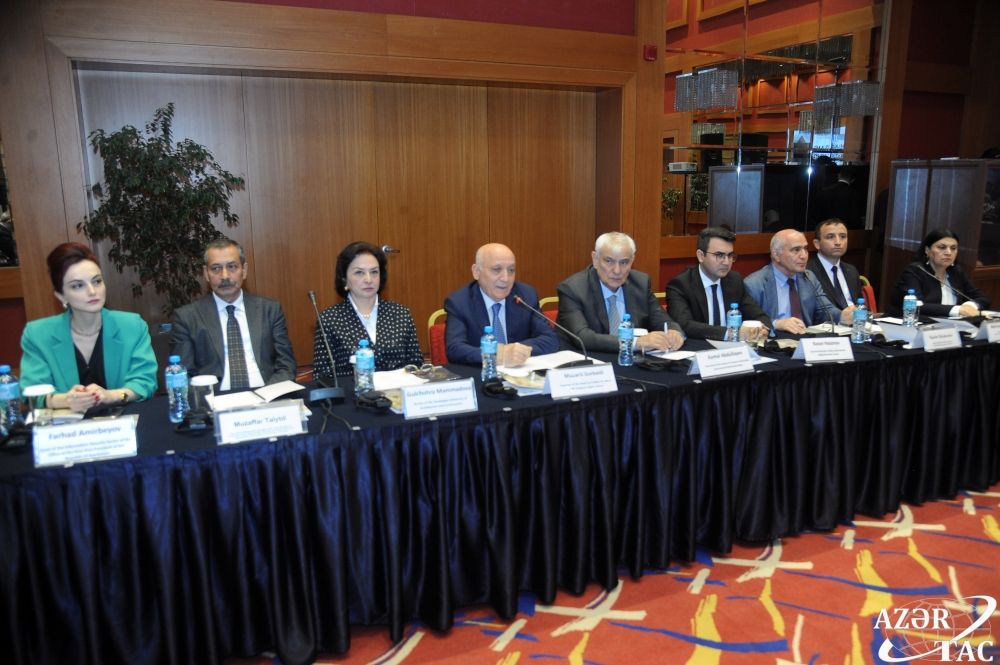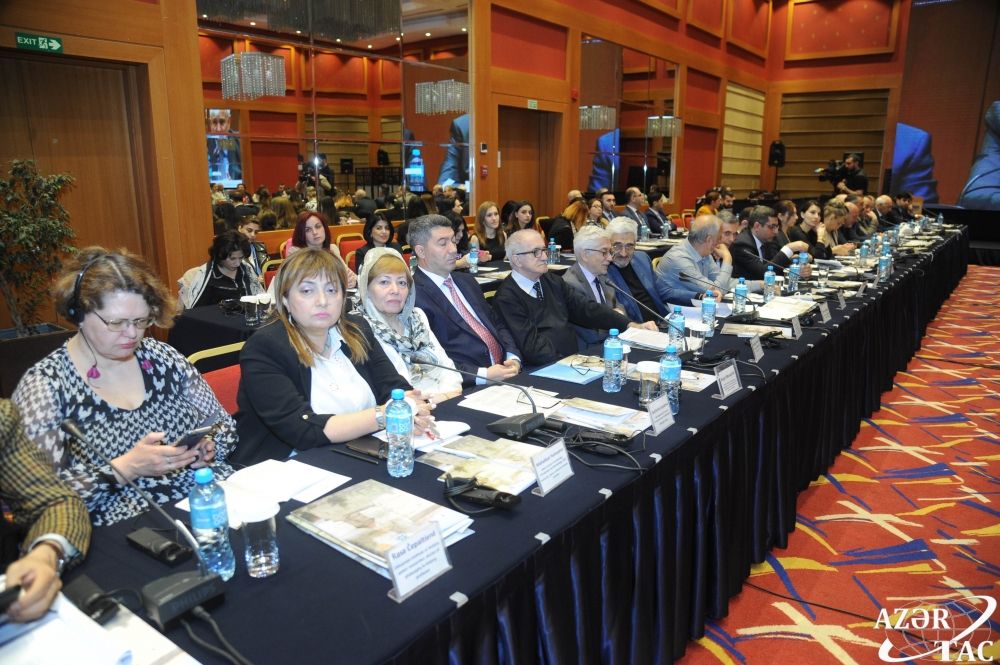Official: Over 60 mosques, 200 shrines destroyed by Armenia during occupation

Armenians destroyed over 60 mosques and about 200 shrines on the territory of Azerbaijan during the occupation, Chairman of Azerbaijan's State Committee on Religious Associations Mubariz Gurbanli said.
He made the remarks during the "Caucasian Albania: Religious and social life" X International conference.
Noting that ethnic cleansing and genocide were carried out on the territories of Azerbaijan for almost 30 years, Gurbanli stated that Albanian Christian churches were either falsified, Gregorianized, or wrecked. He added that an Orthodox church in the Khojavand District was looted and ruined by the Armenians.
"The purpose of destroying or appropriating cultural heritage on the historical lands of Azerbaijan was also to break the connection of these territories with Azerbaijanis and provide false information to the world community," the chairman stressed.
Additionally, Gurbanli stated that Caucasian Albania was one of the oldest states located on the territory of Azerbaijan. He also highlighted that the independent Apostolic Church of Caucasian Albania mainly distinguished from the Armenian-Gregorian Church by the fact that it took its origin directly from the Church of Jerusalem, which irritated Armenians throughout history.
"It is for this reason that in different periods of history, we are witnessing that Armenians tried to make the Albanian Church dependent on the Armenian-Gregorian Church, by flattering the foreigners who occupied these lands,” he noted.
The “Caucasian Albania: Religious and social life” X International conference organized by the Baku International Multiculturalism Center, the ANAS Institute of History named after A.A. Bakikhanov, the Spiritual Values Promotion Foundation, and the Albanian-Udi Christian community, was held in Baku on April 14.
The purpose of the event is to organize effective scientific discussions by bringing together prominent representatives of world Albanian studies.
Research scientists representing Türkiye, South Korea, Russia, Italy, Germany, Georgia, the UK, Norway, and Lithuania participated in the event.
It should be noted that Azerbaijan plays the role of the main research center in the world for the systematic study of the history and ethnocultural heritage of Caucasian Albania. Caucasian Albania has occupied an important place in the life of the region for nearly a thousand years and has left behind an important historical legacy. As a result of the comprehensive study of this heritage, the scientific field of Albanian studies was created and is still developing today.
The Republic of Azerbaijan is the direct historical heir and protector of the rich Albanian ethnocultural heritage, the ancient and early medieval culture of Caucasian Albania, and all the historical and religious heritage created by the ethnos who lived in this area in the following centuries. Investigating the important problems of Albanian studies in the fields of history, archeology, anthropology, ethnology, linguistics, architecture and art, preserving and protecting the Albanian ethnocultural heritage is one of the important directions of the multiculturalism policy of Azerbaijan.
---
Sabina Mammadli is AzerNews’ staff journalist, follow her on Twitter: @SabinaMmdl
Follow us on Twitter @AzerNewsAz
Here we are to serve you with news right now. It does not cost much, but worth your attention.
Choose to support open, independent, quality journalism and subscribe on a monthly basis.
By subscribing to our online newspaper, you can have full digital access to all news, analysis, and much more.
You can also follow AzerNEWS on Twitter @AzerNewsAz or Facebook @AzerNewsNewspaper
Thank you!


